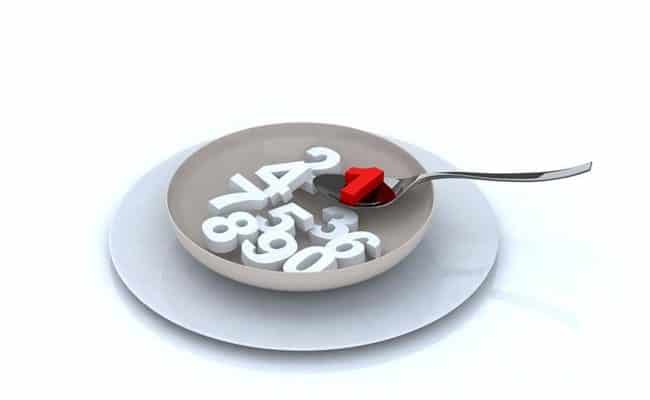
Eating frequency throughout the day has been a long debated issue. Does it matter if you eat 3 meals a day? What if you eat the same number of calories in 1 meal instead? Most research suggests eating once a day is not beneficial. Here are some reasons why you may want to eat more than just once a day.
Blood Sugar
Eating one meal a day means you’re getting a huge amount of food in 1 sitting. This will cause your blood sugar to spike after that meal. A 2007 study from Metabolism- Clinical and Experimental analyzed the effects when subjects ate 1 large meal a day or 3 meals a day. The 1 large meal and 3 meals per day were the same amount of calories.
Results from this study showed that when subjects ate 1 meal a day compared to eating 3 meals a day blood glucose levels had higher fasting blood glucose levels, delayed insulin response to an oral glucose tolerance test and greater elevations in blood glucose after eating.
Based on this study, eating 1 meal a day can increase blood sugar and possibly blunt insulin response. This could increase risk for type 2 diabetes and weight gain. Subjects in this study were healthy and normal weight, and consumed either 1 meal a day or 3 meals a day for 8 weeks each. See also: How to increase your metabolism naturally
Increased fat formation
As mentioned above, eating 1 meal a day can increase glucose and insulin secretions. Insulin promotes fat storage in addition to taking glucose from the blood and bringing it into body cells for energy.
A huge intake of energy at one time each day causes high insulin levels that can increase fat storage. A 2008 study from British Journal of Nutrition analyzed the effects on metabolism with varying meal frequencies. Subjects either ate 3 meals, or only breakfast and dinner. The 3 meals was equal in calories to the only breakfast and dinner experiment.
When subjects ate 3 meals, fat oxidation was increased compared to when subjects ate 2 meals. Although this was looking at 2 meals not 1 meal, other research studies have shown similar results with eating 1 meal a day.
Eating 1 meal a day can increase fat storage and decrease using fat as a fuel. As mentioned in the 2008 study, eating 3 meals actually increased using fat as a fuel compared to eating 2 meals a day.
See also: How many calories should I eat to lose weight
Lower satiety
Eating only once a day decreases satiety. Satiety is a measure of satisfaction after a meal, and will tell your brain you no longer need food. In the 2008 study, subjects had a higher satiety with eating 3 meals a day instead of 2.
Higher satiety throughout the day means you will probably eat less throughout the day. Eating 3 meals compared to 1 meal will leave you more satisfied, meaning your food intake will probably be lower.
Generally speaking, eating 1 meal a day could also affect mental health and emotions. If you’re feeling hungry all day, you will probably be cranky.
Are more meals per day always better?
Eating 1-2 meals a day can increase blood glucose levels, possibly even the day after, and can decrease using fat as a fuel when compared to eating 3 meals a day. So does that mean eating more than 3 times a day is even better you’re your metabolism?
Not necessarily. Sometimes eating every few hours can increase over all calorie intake and keep blood sugar and insulin levels elevated. Some people do better with eating 5-6 smaller meals throughout the day, but it may not be best for everyone.
How to increase meal frequency
Someone who eats only 1 time a day can have difficulty adjusting to eating more times a day. Most of the time the only meal is eaten in the evening. To get your brain used to eating more during the day, start small.
Have something small and light, like a piece of fruit, in the morning. You may not feel hungry, but eat it anyway. For lunch, get used to taking a break during the day and eating something light.
The biggest change someone needs to make when adjusting to eating more frequently during the day is getting in the habit to not gorge at night like usual. It’s important to eat a balanced meal so that in the morning you will be hungrier and more likely to eat throughout the day.
Eating 1 meal a day can have negative side effects like decreasing fat burn throughout the day and increasing blood glucose levels. Eating three meals a day can increase fat burn and increase satiety.
In order to increase meal frequencies during the day, start eating light foods during the day. Change habits; instead of eating a large meal in the evening eat a smaller meal.
References used in this article











Ursula says
i have been trying to lose weight for so long but i still can’t see any change ever thou i see i little bit change on my clothes but what i keep on telling myself is that my clothes are getting old or i just sat to much then it stretched. I am a 26 year old 5.7 feet and i weight 125 pounds but i am so stressed about about my weight. I don’t eat that much or not at all. I don’t starve myself but i just don’t feel hungry all. I f i have to eat it will not be more than 2 or 3 spoon. I don’t dish on my own plate. The only time i get a chance to eat is when i am feeding my 3 year old it’s when i test a spoon from her food. I drink more than 8 glasses of water a day. I really want to lose weight but nothing is still happening. I am not fat and many people tell me that i am skinny and i have amazing body but i don’t see it that way. What shall i do to lose 10 pounds and eat as well?
Tabitha says
Eating one meal a day over a period of years even if that one meal isn’t a large meal will still cause your metabolism to slow down so much that your body will go into starvation mode and will not burn but store everything you take it causing you to gain weight. As my doctor explained it to me years ago, your body doesn’t know what and when it will get anything else so it just starts storing everything it gets. I have ate one small meal a day for over 40 years and the last 15 years I have absolutely been putting on more weight because of it. I need to figure out what to eat. I am looking at a shake or something because the thought of actually eating more food is not appealing at all.
yo says
I lost over 100 lbs eating one meal a day. My stomach shrunk, I eat normally now, and my body looks and feels amazing. Also, I learned to love being hungry and it drives me to be more attentive at work. Eating once a day does NOT replace a good diet. If your one meal is ice cream, well… but if you eat healthy and only once a day, the pounds will shed and you’ll feel way better. Now, I can attend birthday parties and gorge on pizza and ice cream and never an additional pound to notice.
Michelle says
Can my partner become ill eating only 1meal a day and can it effect her thiroide and high blood pressure. I am very concerned
Ben says
I been eating once a day for years. I found that eating the one meal mid day was best for loosing weight. (full disclosure, I do drink a couple cups of coffee in the morning and a few beers in the evening) I attempt to keep my calories to some where between 1000 and 1800 for the day (I am male) and try get most of the major food groups in that one meal. With that calorie budget for 1 meal you can eat pretty much anything you want. I rarely notice hunger pains if any, it is right before lunch, they are mild and drinking water will take care of that. When i started this I dropped an average of a pound a day (w/1000 calorie a day intake) until i hit my BMI Target then i increased the caloric intake to maintain. Your body gets use to this frequency quickly and you feel full for the rest of the day. No Gym, No diet, No fat, Easy!
Jayson says
To Ursula above. If you weigh 125 lb at 5’7″ you are either slim athletic or even skinny. You are most likely anorexic to try to lose another 10lb. Don’t do it.